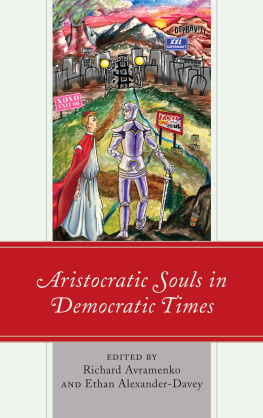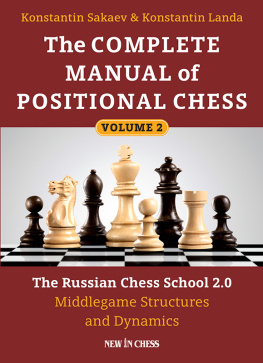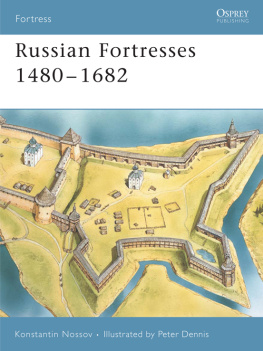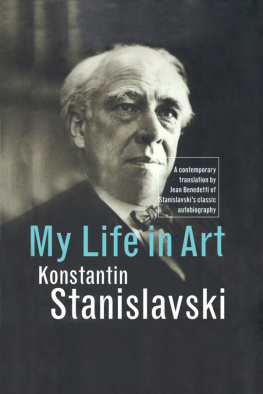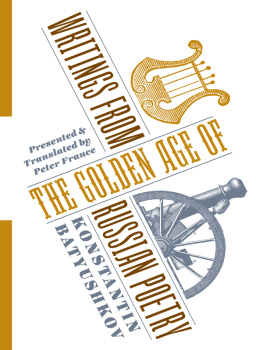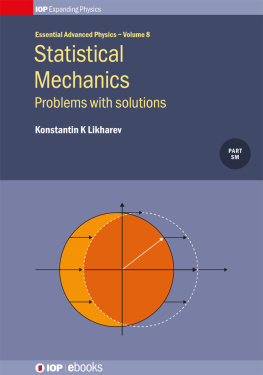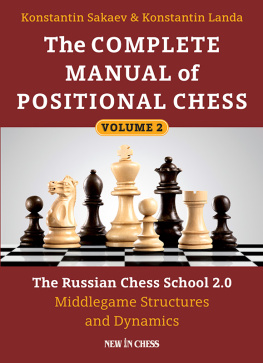DISENCHANTED WANDERER
THE APOCALYPTIC VISION OF KONSTANTIN LEONTIEV
G LENN C RONIN
NORTHERN ILLINOIS UNIVERSITY PRESS
AN IMPRINT OF CORNELL UNIVERSITY PRESS
Ithaca and London
For Peggy Darran (19372019)
An installment on a debt that cannot be computed, much less repaid.
To the memory of a man who tried his hand at everything and brought no benefit to anyone, aside from three or four people.
Konstantin Leontiev on himself in a letter to Anatoly Aleksandrov from the monastery of Optina Pustyn, 19 November 1889
A CKNOWLEDGMENTS
My special thanks go to Bob Owens, professor emeritus of English Literature at the Open University, and to his wife Patti, who badgered me mercilessly to commence this work and saw me through to completion. To my friends Alison and Rob Chaplin, Lesley and Tony OShaughnessy, and Denise Merry, who stood by me in my darkest moments and whose love and support never wavered (however sorely they were tried). And to Donald Rayfield, professor emeritus of Russian at Queen Mary University of London, without whose guidance Konstantin Leontiev would have remained to me, as to many another, a riddle, wrapped in a mystery, inside an enigma.
My grateful thanks also go to Amy Farranto, Senior Acquisitions Editor at the Northern Illinois University Press, and to Kate Gibson, Production Editor at Westchester Publishing Services, for their invaluable help and advice in the preparation of this volume.
N OTE ON T RANSLATION , T RANSLITERATION , AND D ATES
Where primary source citations in the text are from the Russian or German languages, the translations and transliterations are my own. The Library of Congress transliteration system is generally used, I have however kept some authors names in the form more familiar to the English-speaking reader: for example, Leontiev, rather than Leontev. The use of italics for emphasis, to which Leontiev was much addicted, is in every case his own unless otherwise indicated. Dates are Old Style unless otherwise indicated.
Introduction
In July 1871 the forty-year old Russian consul in Salonika lay in bed dying, as he thought, of cholera. Now sweating, now shivering, alone and terrified, Konstantin Nikolayevich Leontievscion of minor gentry from the Kaluga Province of Russia, social commentator, literary critic and aspiring novelist, formerly a doctor in the Army of the Crimea, now attached to the Russian diplomatic mission in Constantinopletook stock of the course of his life with the urgency of a man facing the prospect of imminent annihilation.
I looked on the icon of the Virgin, he wrote to his friend and disciple Vasily Rozanov shortly before his death in November 1891:
And although I am not usually a cowardly person, I was seized by such horror at the thought of my physical demise that I suddenly found myself, in an instant, believing in the reality and power of that very Mother of God. I believed in her as strongly and intensely as if there was before me an actual living woman, a woman well known to me, kindly and all-powerful, and I cried out to her: Mother of God, Im not ready, Im not ready to die yet, Ive still done nothing worthy of my capabilities and I have led in the highest degree a life of dissolution and refined sinfulness. Raise me from this bed of death!
Leontiev vowed to the Virgin that if he recovered he would go to the nearby holy mountain of Athos to repent his past life and, if necessary, to receive ordination as a monk. The illness was not cholera however but a severe bout of malaria, the onset of the chronic malady that was to beset him on and off for the rest of his life. When the attack subsided his sense of relief was palpable: In two hours I was on my feet. The attack passed even before the doctor arrived. Three days later I was on Athos.
Leontievs appeal to the Virgin seemed to have been answered, and the consequences were momentous. He remained on Athos until the middle of August when he returned to Salonika ostensibly to look for a document of importance to the monastery. Instead, he gathered all his manuscripts for a monumental series of novels from Russian life, with the collective title The River of Time, and threw them into a blazing fireplace, thus severing, as he thought, all connection with his past life. Following this brief return to Salonika, where the inhabitants concluded he had gone mad, Leontiev abandoned his duties, took extended sick leave, and went back to the Holy Mountain in September, staying there until August 1872.
This crisis of 1871 is usually regarded as the great watershed in Leontievs life, the moment at which the pagan aesthete and anti-moralist of his youth and early manhood disappeared to be replaced by the gloomy pessimist and God-seeker of his maturity and premature old age. But Leontievs conversion was by no means the clear cut Damascene experience that his letter to Rozanov might suggest. On the contrary, Leontievs entire life was spent in a continuous, and only partially successful, struggle to achieve a resolution of the competing impulses within his soul, a struggle which repeatedly gave rise to conflicts of one kind or another, conflict within himself but equally conflict with his contemporaries.
A particularly striking example occurred in January 1880, two weeks before Leontievs fiftieth birthday, when he wrote the following words for the Russian language newspaper Varshavskii Dnevnik (Warsaw Diary), of which he was then deputy editor: For one who does not regard felicity and universal justice as mankinds destiny there is nothing objectionable in the thought that millions of Russians were compelled to endure whole centuries under the yoke of the three estates, the bureaucracy, the landowners and the Church, just so that Pushkin could write Onegin and Godunov, the Kremlin and its cathedrals be built, Suvorov and Kutuzov attain their patriotic victories.
It is difficult to overstate how out of season these sentiments were in the Russia of the time. In June of the same year Fyodor Dostoevsky would deliver to general acclaim his famous speech at the Pushkin festival, which among other things urged his hearers to imagine that you yourself are building a palace of human destiny with the final goal of making all men happy and giving them peace and rest at last. And imagine too that for that purpose it is necessary and inevitable to torture to death one single human being Would you consent to be the architect on this condition? Can you for one moment believe that those for whom the building had been built would agree to receive happiness from you if its source was such suffering?



